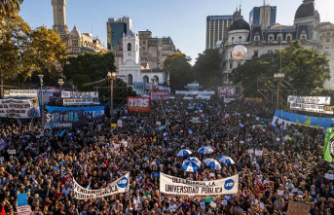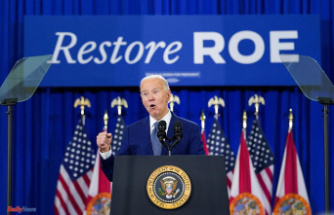Coady reported that the"status quo is no more okay."
The funding deficit for 2020-21 arrived in at north of $1.6 billion -- a dire figure which was really better than anticipated.
The government expects to balance the books from five decades.
The question today is exactly what will be done in order to make that a fact.
"In the previous year, strong financial management and increased earnings have helped relieve the continuing effects of a volatile oil business and a pandemic which has generated a worldwide financial meltdown," Coady said.
"Despite our enhanced functionality, alternatives are necessary to deal with long-term structural problems like the cost of providing services to almost 600 communities throughout a big geography, chronic shortages, and dependency on volatile oil earnings, in addition to a declining and aging population."
Greene report recommendations sprinkled throughout budget
A number of the ideas from the current Greene report have been sprinkled across the budget document as up things for consideration.
"Consultations are underway to the premier's financial recovery group record," Coady advised the legislature.
"We'll hear everything you need to state for future leadership."
The state will analyze numerous choices supplied by Greene, without committing to complete implementation of those.
There's a strategy to"immediately start the restructuring of Nalcor" and also to review the state's oil company. Greene suggested eliminating both.
Assets like Marble Mountain, offshore oil and gas equity bets, in addition to the Newfoundland and Labrador Liquor Corporation is going to be reviewed.
2 Crown companies -- NL911 along with the Newfoundland and Labrador Centre for Health Information -- will probably be rolled to the heart authorities. Greene had informed reducing the amount of agencies, commissions and boards.
The state will take steps to incorporate the Newfoundland and Labrador English School District to the Department of Education.
Targeted tax affects
There are a few steps in the budget which will influence taxpayers' wallets.
But they're concentrated efforts, not sweeping changes.
The top three percent or so of earners -- anyone earning over $136,000 -- will probably see earnings tax gains. The changes are expected to create $15.3 million to provincial coffers.
A few other modifications align with the subject of health advertising touted from the Andrew Furey management.
A physical action tax charge of up to $2,000 per household is going to be released.
Tobacco taxation are on the upswing again -- a three-cent growth per cigarette and a rise of six cents per g on fine-cut tobacco.
A 20-cent-per-litre sweetened drink taxation will become effective next April, even though the precise details of which are still being exercised.
Additionally, homeowners may also get some help transitioning their houses from oil to power, using a rebate of up to $2,500.
Substantial revenue increase this season
This season, that amount is projected to leap into $8.5 billion.
There are two important things in that good-news earnings increase: added national government-related money inflows, and a major dip in petroleum royalties.
Rebounding crude costs could observe the state earn $1.1 billion annually, nearly double the $567 million in this past year.
That alter again underscores the significance of petroleum and gas revenues to Newfoundland and Labrador's financial fortunes, at least in the long run.
Spending projected to grow
While earnings are jumping, there's absolutely no corresponding cut the cost side of the ledger to the next year.
In reality, spending is really projected to grow to $9.3 billion in 2021-22.
Officials attribute that rise to the time of when revenue from a 320-million national oil and gas finance reach the novels, a few other federal-provincial cost-sharing agreements, and wage gains for public-sector employees.
On the other hand, the state expects to aggressively decrease spending next year.












